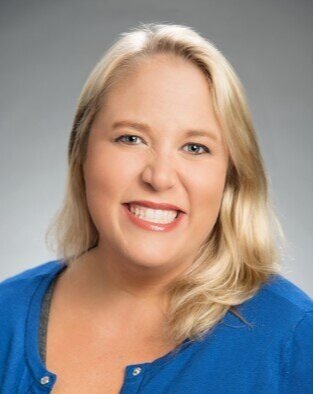Pregnancy hair is a thing. It’s thicker, longer, more luscious, practically award-winning. It can turn slow-to-grow into hello, flow! But to what do we owe the credit? Is it our trusted prenatal vitamins or the hormones flowing during pregnancy? To get to the bottom of whether prenatals are the secret to hair growth, we checked in with Dr. Amber Samuel, MD, MBA, FACOG.

Do prenatal vitamins help your hair grow longer and thicker during pregnancy?
Not exactly. “In fact, the hormones that increase in pregnancy are largely the cause of the changes women noticed in their care during pregnancy, namely increased growth and change in texture. That being said, these changes will be more effective if the building blocks that you need are available,” Dr. Samuel says.
“Prenatal vitamins are important for hair supplementation as both demand from hair growth is increasing and supply is decreasing because of the nutrients taken across the placenta to your little one. Vitamin supplementation can offset that placental loss.”
What ingredients specifically help your hair grow?
“Research has shown that the vitamins which are most necessary in growth and maintenance of hair are Biotene which is also known as B7, iron, vitamin C, vitamin D, and zinc. With the exception of vitamin C, these are all commonly lower during pregnancy and in the postpartum period,” Dr. Samuel explains.
Do prenatals have the same hair effects in pregnant and non pregnant women?
Here’s the womp womp news. “Probably not. Because a lot of the changes in pregnancy are related to surging hormones,” Dr. Samuel explains. “A non-pregnant woman who is not breastfeeding is unlikely to have the same hair changes despite a similar supplementation regimen.”
Are there concerns about taking prenatals while not pregnant?
Here’s the good news. “Most research regarding vitamin supplementation has been done around pregnant and breastfeeding women and thus we know that vitamins in the space, while they may not have the same effects as during pregnancy, are safe for all women,” Dr. Samuel says.
“What’s more, I recommend prenatal vitamins for all patients of reproductive age both for the health benefits and also because the majority of women will be pregnant and during a time of crucial fetal development requiring certain nutrients long before they are aware of the pregnancy.”
Our Conception Support Pack is formulated to prepare your body for pregnancy with antioxidant support, added omegas, additional folate and a full-spectrum prenatal vitamin.
Can prenatals help women dealing with postpartum hair loss?
“Most all women will lose hair in the postpartum period, once again related to hormone changes during and after pregnancy. Prenatal vitamins will not prevent this, however they may encourage new hair growth after loss and maintain texture and healthy appearance of hair despite any thinning that may be noticed. Many vitamins become deficient during breastfeeding as this is the most metabolically active time for women. Thus, continued supplementation is recommended at least until breastfeeding has concluded,” Dr. Samuel advises.
Our Mom Multi Support Pack boasts a Beauty Blend with biotin and collagen to support healthy skin, hair, and nails postpartum and throughout motherhood.
Shop the Article:
Read next: How much hair loss is normal, anyway? We’d love to hear your experience. Tell us by joining the Perelel community on social.
This article is for informational purposes only. It is not, nor is it intended to be, a substitute for professional medical advice, diagnosis, or treatment and we recommend that you always consult with your healthcare provider. To the extent that this article features the advice of physicians or medical practitioners, the views expressed are the views of the cited expert and do not necessarily represent the views of Perelel.
Written by Jessica Lopez. Jessica Lopez is a freelance writer, digital content creator, and new mother. She has covered all lifestyle topics ranging from bridal to beauty for publications including Brides Magazine, Byrdie, THE/THIRTY, and more. Walking wide-eyed into motherhood has inspired her to connect with other parents through her writing and shared experience. You can follow more of her journey @Jessica.H.Lopez.






















